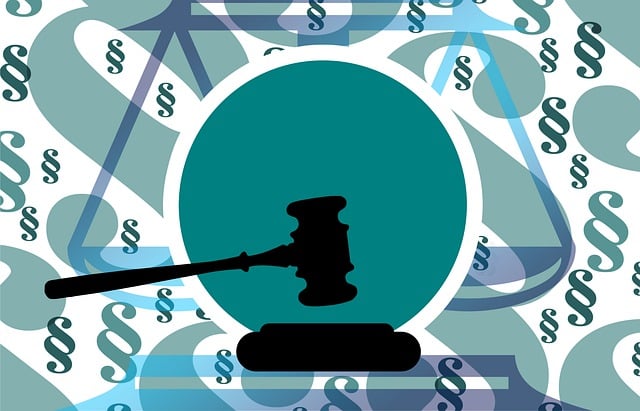Trademark infringement in the RF Securities industry carries severe legal consequences, including financial penalties and imprisonment. Proactive risk management, robust legal tactics, and understanding regulatory frameworks are vital to protect intellectual property rights and avoid damaging brand reputation. Compliance with cross-border laws is crucial for international expansion, ensuring market integrity and ethical practices.
The RF Securities industry faces unique challenges in trademark infringement, where intellectual property (IP) rights are paramount. This article explores the intricate landscape of regulating RF Securities, delving into critical aspects like understanding trademark infringements and their legal ramifications. We analyze the consequences for offenders, the protective measures available to IP owners, and the enforcement mechanisms played out by regulatory bodies. Additionally, we provide an international perspective on cross-border infringement laws, shedding light on the global effort to safeguard intellectual property and its crucial legal implications.
- Understanding Trademark Infringement in RF Securities
- Legal Ramifications: Consequences for Offenders
- Protecting Intellectual Property: Rights and Remedies
- Enforcement Mechanisms: Roles of Regulatory Bodies
- International Perspective: Cross-Border Infringement Laws
Understanding Trademark Infringement in RF Securities

In the RF Securities industry, understanding trademark infringement is paramount to maintaining a competitive edge and ensuring operational integrity. Trademark laws protect unique identifiers used by companies to distinguish their products or services from others in the market. Infringement occurs when a party uses a similar mark in a way that could confuse consumers as to the source of the goods or services. This not only undermines brand reputation but also has significant legal consequences, including monetary damages and injunctions to stop the infringing activity.
The legal implications of trademark infringement extend beyond financial penalties. Offenders may face criminal charges for willful and malicious infringement, particularly in cases involving white-collar and economic crimes. Achieving extraordinary results in such disputes often requires robust legal strategies that focus on protecting intellectual property rights and demonstrating the impact of infringement on brand value and consumer perception across the country.
Legal Ramifications: Consequences for Offenders

The legal ramifications of securities industry regulation are severe, with significant consequences for offenders. Trademark infringement, for instance, carries substantial penalties, reflecting the importance of maintaining fair and transparent markets. The impacts extend beyond financial fines; they can include imprisonment for individuals found guilty of fraud or other illicit activities. These high-stakes cases often involve complex legal battles, where sophisticated winning challenging defense verdicts require robust evidence and astute strategic planning.
For businesses operating within the RF securities industry, understanding these legal consequences is crucial to ensuring compliance. Navigating the intricate web of regulations and avoiding trademark infringements can protect not only their reputation but also safeguard them from substantial legal repercussions. In such a dynamic environment, staying informed and proactive in risk management is essential for long-term success in respective business ventures.
Protecting Intellectual Property: Rights and Remedies

In the RF Securities Industry, protecting intellectual property (IP) is paramount for companies aiming to achieve extraordinary results in high-stakes cases. IP rights, including trademarks, patents, and copyrights, are invaluable assets that differentiate businesses and attract customers. However, these protections come with legal consequences for trademark infringement, where unauthorized use of a registered mark can lead to significant penalties.
Remedies for IP owners include injunctions to stop the infringing activity, monetary damages to compensate for lost revenue, and even criminal charges for willful and malicious infringement. The RF Securities Industry’s robust white collar defense mechanisms further emphasize the severity of IP violations, reflecting the importance of upholding these rights within the regulatory framework.
Enforcement Mechanisms: Roles of Regulatory Bodies

The regulatory landscape within the RF Securities Industry is meticulously crafted to maintain integrity and protect investors. Central to this framework are enforcement mechanisms, where regulatory bodies play a pivotal role. These bodies, armed with the power to investigate, impose fines, and even revoke licenses, act as watchdogs ensuring adherence to stringent regulations. The presence of robust legal consequences for violations, including the Legal Consequences of Trademark Infringement, serves as a deterrent, encouraging compliance and fostering fairness in the market.
Regulatory bodies, such as the Securities and Exchange Commission (SEC) in the United States, employ a range of tools to enforce these rules. They conduct thorough examinations, issue warnings, and when necessary, initiate winning challenging defense verdicts against non-compliant entities, including white-collar offenders. This meticulous approach ensures that market participants understand their responsibilities, ultimately shaping a secure and transparent environment for investors.
International Perspective: Cross-Border Infringement Laws

In the globalized securities industry, cross-border infringement laws play a pivotal role in protecting intellectual property and maintaining market integrity. With financial institutions expanding their operations internationally, the risk of trademark infringement across borders has become a significant concern. The legal consequences of trademark infringement can be severe, impacting not just individual companies but also the overall stability of the global securities market.
From a white collar defense perspective, understanding these cross-border laws is essential for respective businesses aiming to forge a sustainable and compliant international presence. An unprecedented track record of successful legal defenses often hinges on proactive compliance measures and a deep grasp of the jurisdiction’s intellectual property regulations. This includes navigating complex legal frameworks that govern securities trading, ensuring strict adherence to anti-infringement provisions, and fostering a culture of ethical business practices globally.
The regulation of the RF Securities industry demands a comprehensive understanding of trademark infringement, its legal ramifications, and international perspectives. By protecting intellectual property through robust rights and remedies, regulatory bodies play a pivotal role in enforcing laws against offenders. Navigating these mechanisms ensures a fair and competitive market, upholding the integrity of financial securities while mitigating the severe Legal Consequences of Trademark Infringement.






